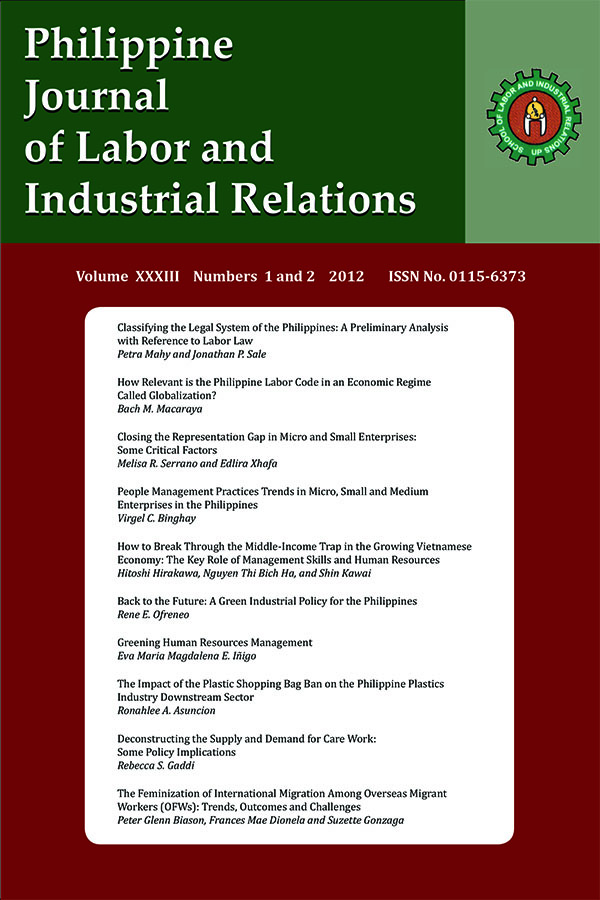The Impact of the Plastic Shopping Bag Ban on the Philippine Plastics Industry Downstream Sector
Abstract
Policies have either intended or unintended consequences. Since 2010, various local government units (LGUs) nationwide have passed ordinances imposing stricter regulations on or completely banning the use of plastic shopping bags (PSB). Other LGUs have pending ordinances on this matter or are still in the process of reviewing them. Thus, very soon, the number of LGUs that will regulate or ban plastic shopping bags will definitely increase. In Metro Manila alone, 10 out of 17 municipalities and cities have already enforced the regulation or ban of PSBs. This resulted in the closure of some PSB manufacturing plants, drops in sales volumes, the demoralization of PSB workers, reduced number of work hours per day, reduced number of work days per week, decreased income, and worst of all, loss of jobs for many PSB workers. Considering the magnitude of the problem, there is a need for an integrated approach to resolve the complex issues and challenges the PSB subsector is facing. Protecting the environment is everyone’s concern. Instead of an outright ban, PSBs should be managed and consumers should be given a choice. Governments both at the national and local levels, the plastic industry, and the whole community have significant and interlocking roles in ensuring that waste is disposed of properly. The national government should be cognizant of the fact that there is an urgent need to pass a national industrial policy on this matter. Equally important and urgent is for all Filipinos to start changing habits, behaviors and mindsets.


